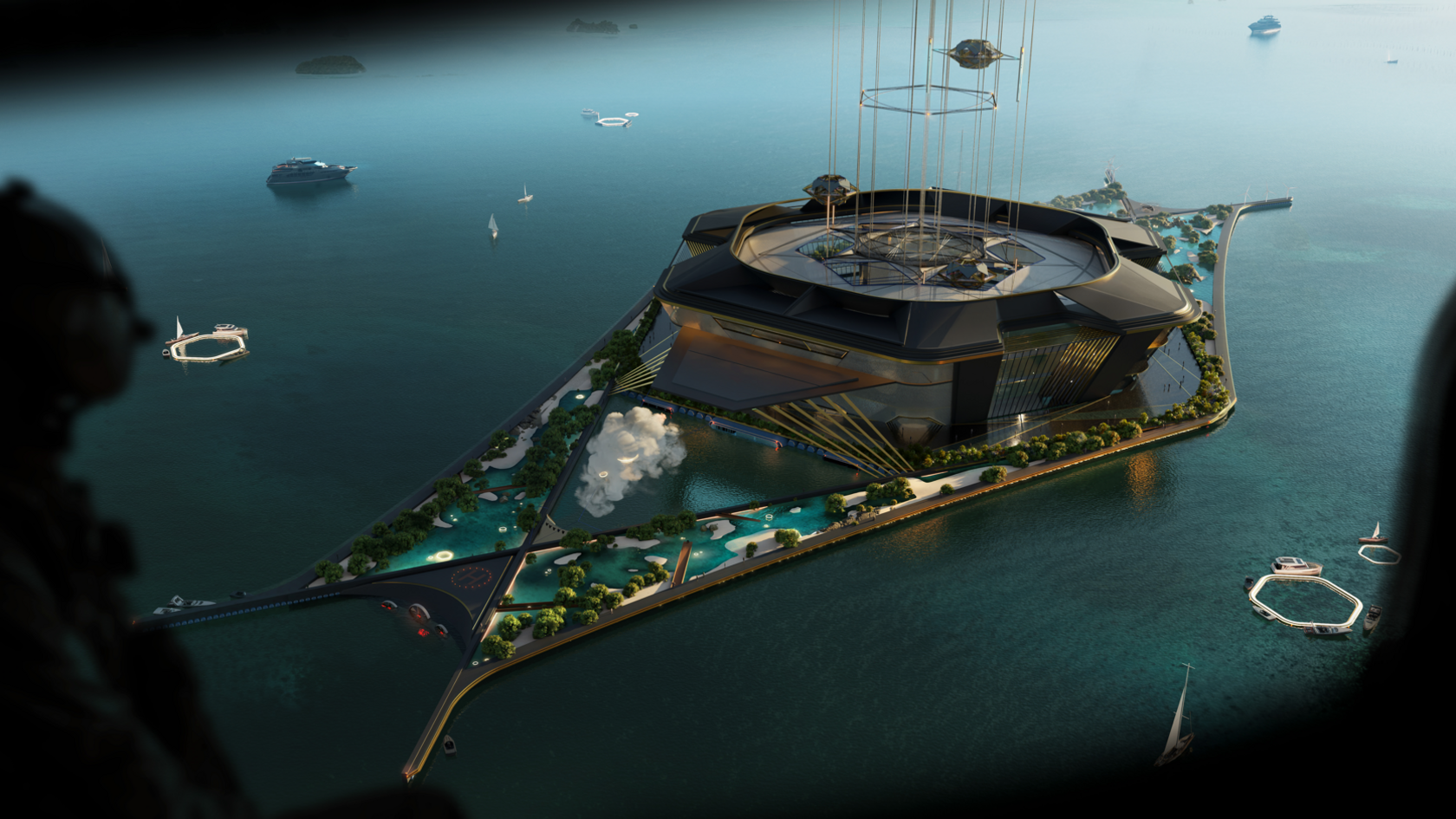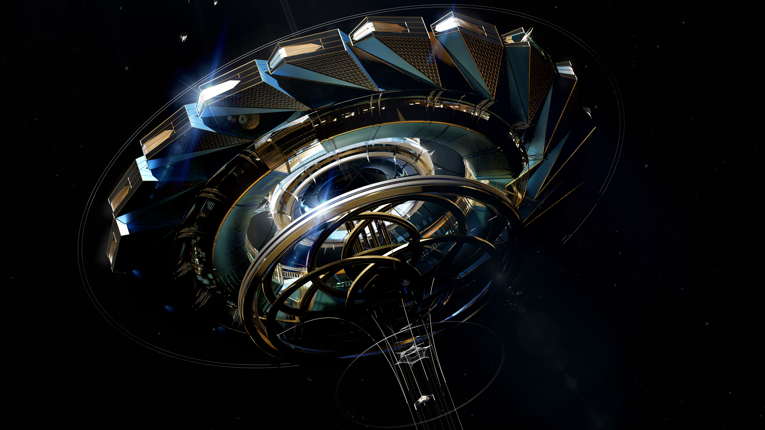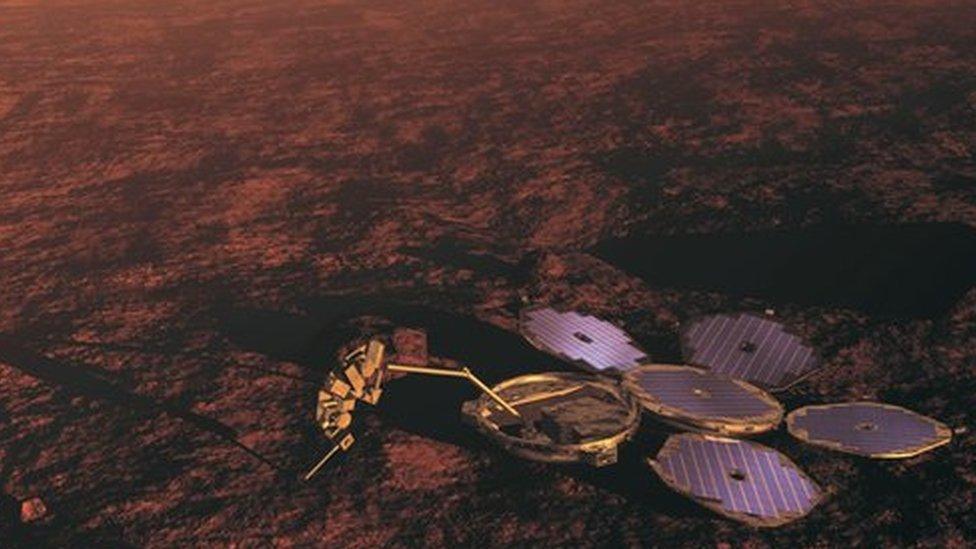Space elevator concept wins €10,000 design prize

The elevator would launch from an ocean ship
- Published
An architect from Cumbria has won a €10,000 (£8,617) prize for his design of a new kind of space travel.
Barrow-born Jordan William Hughes has designed an elevator that transports passengers into space.
His futuristic concept was awarded a prize for space architecture and innovation from the Jacques Rougerie Foundation, in Paris.
Mr Hughes admits that the idea may be fanciful today but he believes space elevators will be used in the future.
Mr Hughes works as an architect in London and designed the Ascensio space elevator in his spare time.
The use of an elevator is designed to replace rockets, which he says are inefficient, expensive and bad for the environment.

The elevator would connect with a space port
The design involves dropping a cable-like structure from a space port down to earth.
It would then connect with a ship that can move around the ocean to keep pace with the space port.
Speaking to BBC Cumbria, Mr Hughes said: "It would revolutionise the way we get to and from space and make it more viable."
Mr Hughes said the idea of space elevators have been around for some time and have been considered in science fiction and real world studies.
Despite this, he believes the idea will not become a reality for some time.

Mr Hughes received his award at the Palais de l'Institut de France, in Paris
"This would be a very expensive, very ambitious project and it's not something I'm expecting to be built in the next 10 years," he said.
"But I am pretty much certain that at some point this will be built. Not my project, but a space elevator."
Mr Hughes believes that Ascensio's core features - its mobility, light weight and safety benefits - will be present in future space elevators that are made.
"It's a bit fanciful today but I'm sure it will happen because this is the only way space travel and space exploration actually works and becomes efficient."
Follow BBC Cumbria on X (formerly Twitter), external, Facebook, external and Instagram, external. Send your story ideas to northeastandcumbria@bbc.co.uk.
- Published18 November 2023

- Published25 December 2023
